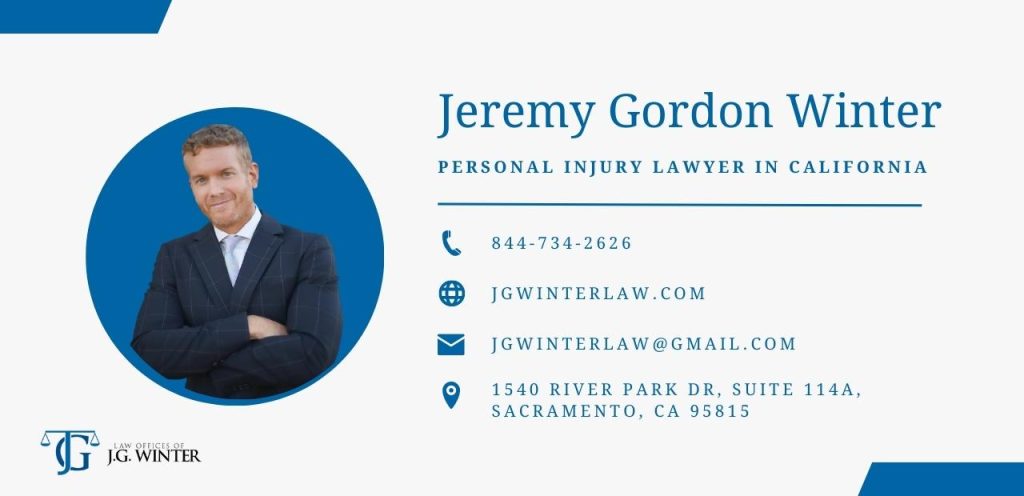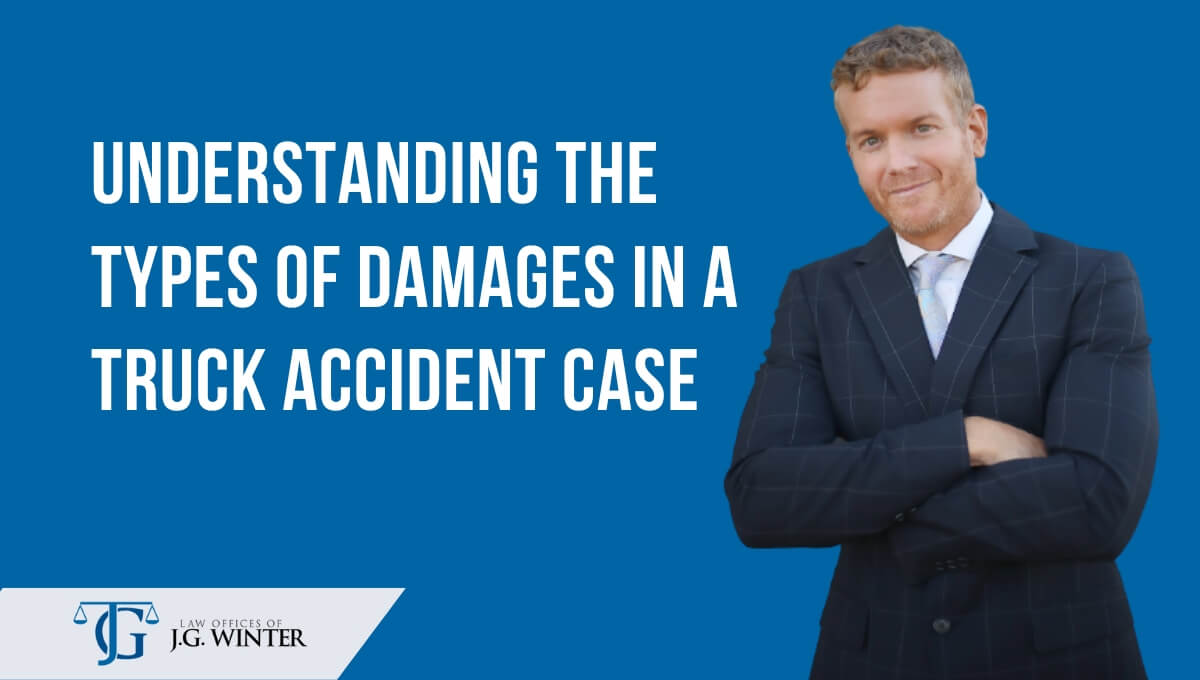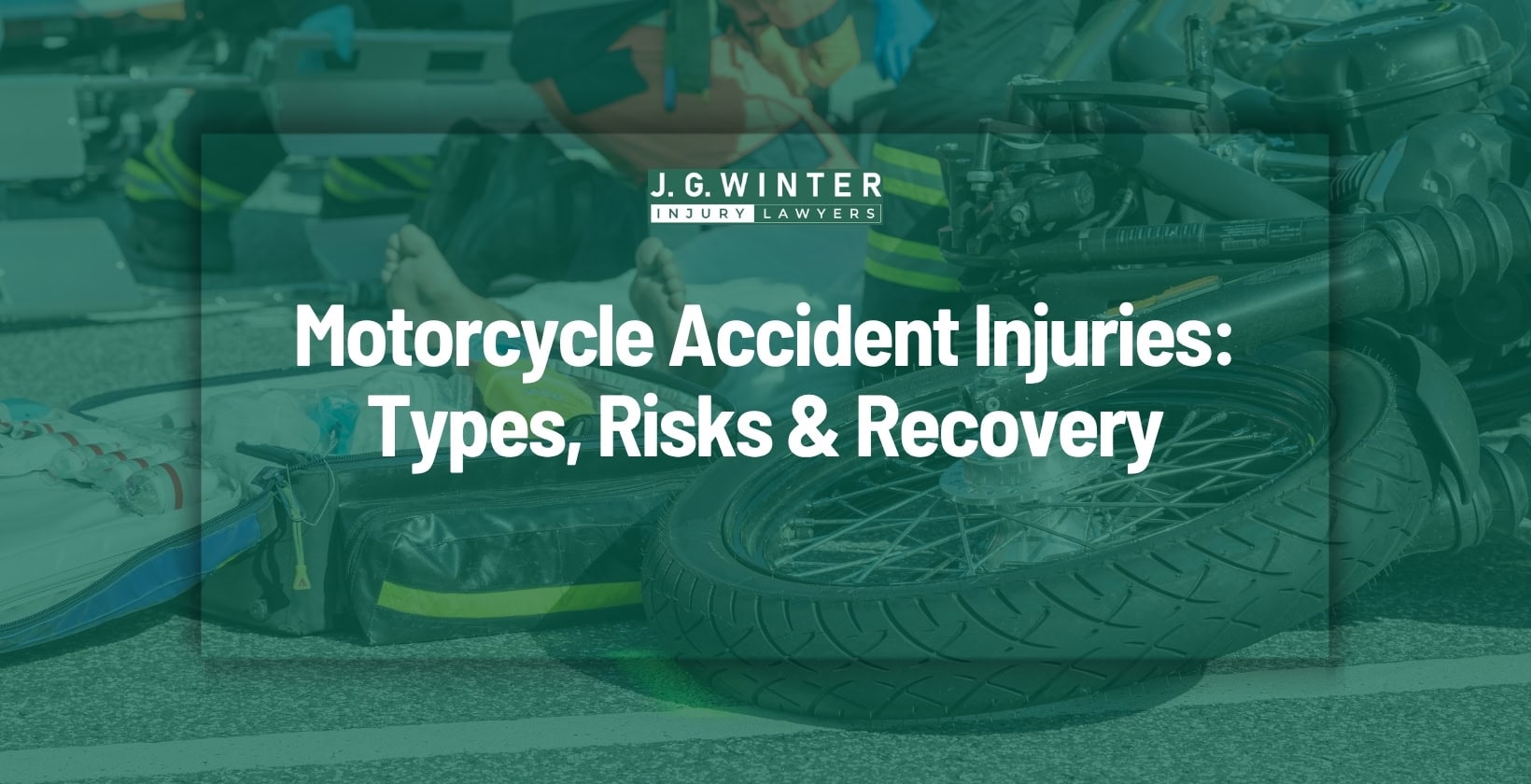The aftermath of a truck accident can be overwhelming, both physically and financially. Victims often grapple with the complexities of identifying and understanding the types of damages they can claim. This confusion can be daunting, especially when trying to recover physically, mentally, and financially from such an incident. Understanding the types of damages in a truck accident case helps victims seek the right compensation for their losses.
While each case varies, having a comprehensive grasp of the potential damages ensures victims don’t undersell their rightful claims. In these trying times, legal assistance becomes indispensable. With its proven track record, J.G. Winter Law assists victims in navigating this intricate terrain. Our California truck accident lawyers help you secure the justice and compensation you deserve.
Truck accidents and its impacts
Truck accidents are not just mere road mishaps. Their scale and magnitude often result in severe consequences that transcend mere physical injuries. These large vehicles, due to their sheer size and weight, can cause devastating effects that ripple across various aspects of a victim’s life.
Understanding these impacts is crucial in gauging the full extent of the damages sustained.
- Physical injuries: Truck accidents often lead to serious injuries such as fractures, traumatic brain injuries, and spinal cord damage. Immediate medical attention is essential, but the recovery can be long and arduous.
- Emotional trauma: Beyond the physical pain lies the emotional and psychological scars. Many victims experience post-traumatic stress, anxiety, and depression post-accident.
- Financial strain: The combination of medical bills, rehabilitation costs, and potential loss of income can plunge victims into financial turmoil, making the recovery process even more challenging.
- Property damage: Often, personal property like cars, bikes, or any other belongings at the accident site can be severely damaged or become irreparable.
- Disruption of daily life: Regular routines, work schedules, and even personal relationships can be adversely affected due to prolonged recovery periods and the associated emotional stress.
Types of damages in a truck accident case
When involved in a truck accident, victims may encounter a multitude of damages that can have profound effects on their lives. Grasping the different types of damages is essential to understand the compensation one might be entitled to.
Economic damages
Economic damages refer to the tangible, out-of-pocket losses a victim incurs due to an accident.
- Medical expenses: These encompass costs for hospital stays, surgeries, medications, and even future medical treatments.
- Lost wages and income: Victims may lose income due to time off work or diminished earning capacity in the future.
- Total property damage: This includes repair or replacement costs for vehicles or any other personal property damaged in the accident.
- Potential future costs: Anticipated expenses related to long-term care or rehabilitation.
Non-economic damages
These are intangible losses that don’t have a direct monetary value but significantly affect a victim’s quality of life.
- Pain and Suffering: The physical and emotional distress caused by injuries.
- Loss of consortium: Damages for the loss of companionship or relationship with a spouse.
- Emotional distress: Anxiety, depression, or other emotional traumas resulting from the accident.
- Loss of enjoyment: The inability to enjoy hobbies or activities previously enjoyed.
Punitive damages
Unlike economic and non-economic damages, punitive damages aren’t meant to compensate the victim. Instead, they are designed to punish the negligent party for their reckless actions and deter similar behaviors in the future. They are awarded in cases where the defendant’s actions were particularly malicious or grossly negligent.
Click here if you want to know about Types of Truck Accidents: 9 Most Dangerous Ones.
Causes behind the damages incurred in a truck accident
Truck accidents often leave behind a trail of devastation. While the damages are evident, the underlying causes might be varied and multifaceted. Being aware of these causes helps you better appreciate the complexities surrounding truck accidents and the importance of safe practices on the road.
Driver fatigue
Fatigue plays a massive role in trucking accidents. After hours of continuous driving, truckers might find it challenging to concentrate, leading to errors in judgment. Adequate rest breaks are essential, but many times, the pressure to meet delivery deadlines can lead to negligence, resulting in fatigue-related accidents.
Distracted driving

Today’s world is filled with distractions, from smartphones to infotainment systems. When a trucker diverts their attention from the road, even for a split second, it can have disastrous consequences due to their vehicle’s sheer size and momentum.
Poor vehicle maintenance
Regular maintenance ensures that trucks operate safely. When truck owners or operators neglect this vital aspect, issues such as brake failures, malfunctioning signals, or tire blowouts can occur, leading to accidents.
Overloading
Every truck has a set weight limit for safety reasons. When these limits are exceeded, it can adversely impact the truck’s balance, braking ability, and overall safety, increasing the risk of an overturn or brake failure.
Substance abuse
It’s alarming, but some truck drivers resort to drugs or alcohol while on duty. Such substances severely hamper their reflexes, judgment, and overall driving capability, making the roads unsafe for everyone.
Inadequate training
Proper training ensures that truck drivers can handle their vehicles in various scenarios. Inadequate training might mean that a driver isn’t prepared for certain road conditions or emergency situations, leading to mistakes and accidents.
Speeding
To meet tight deadlines, some truck drivers might resort to speeding. Given the weight and size of their trucks, controlling these behemoths at high speeds becomes challenging, leading to accidents, especially in traffic or on curves.
Weather conditions
Trucks, due to their size, are more susceptible to adverse weather conditions. Be it heavy rain, snow, or strong winds, these factors can affect a truck’s stability and traction, leading to potential accidents.
Poor road conditions
Potholes, uneven roads, and lack of clear signage can be particularly hazardous for truck drivers. Such conditions can lead to loss of control, especially if the trucker is not anticipating such road challenges.
Reckless driving by other motorists
While truckers can be at fault, other reckless drivers can sometimes cause accidents. Cutting off a truck, driving in its blind spots, or unpredictable maneuvers can lead to collisions, as trucks cannot stop or swerve as quickly as smaller vehicles.
What to do after a truck accident?
Accidents involving trucks can be particularly traumatic, given their sheer size and weight. The aftermath can be overwhelming, and acting promptly and judiciously is crucial. Your actions post-accident can significantly influence your well-being and any legal claims you might consider.
Here are essential steps to follow:
- Prioritize safety: Your immediate safety and that of others involved is paramount. If possible, move away from traffic flow to a safe spot. Avoid staying near leaking fluids or wreckage, as they can be hazardous.
- Call 911: Always report the accident to the police, regardless of the severity. Their report can be invaluable later, especially when dealing with insurance claims or legal proceedings.
- Seek medical attention: Even if you feel fine, injuries from such accidents might not manifest symptoms immediately. Getting checked by a medical professional is essential to identify any underlying issues.
- Document the scene: Take photos or videos of the accident scene, the vehicles involved, license plates, road conditions, and any injuries. This visual evidence can be crucial for any subsequent claims. Similarly, there are more evidences you need to file a truck accident case in Sacramento.
- Exchange information: Collect contact details, insurance information, and driver’s license details from all parties involved. If there are any witnesses, take their contact information as well.
- Refrain from admitting fault: Avoid discussing specifics of the accident or admitting fault. Anything you say can be used against you later in insurance or legal proceedings.
- Notify your Insurance Company: Inform your insurance provider about the accident as soon as possible.
- Seek legal counsel: Especially in accidents involving trucks, the legal and insurance dynamics can be complex. Consulting with a specialized truck accident attorney in Sacramento, such as those from JG Winter Law, can offer invaluable insights and help protect your rights.
- Keep records: Maintain a record of all medical treatments, bills, repairs, and any other expenses related to the accident. These can be crucial when seeking compensation.
- Avoid early settlement offers: Insurance companies might approach you with settlement offers. Without proper legal guidance, you might end up accepting a value much lower than what you deserve. Always consult with your lawyer before making any decisions.
Reach out to truck accident attorney at J.G Winter Law

After a truck accident, the path to recovery can be challenging and fraught with legal complexities. From deciphering the intricate aspects of insurance claims to negotiating fair compensation, every step requires expertise. J.G Winter Law is adept at navigating the intricacies of truck accident cases. With a proven track record of successfully representing victims, our personal injury lawyers in California protect your rights and help you receive the compensation you rightly deserve. Contact us at J.G Winter Law, where your peace of mind and justice are our top priorities.
FAQs on trucking accident damages
What is compensatory damage?
Compensatory damage is a legal term used to describe the monetary compensation awarded to a victim to cover the actual losses and expenses incurred as a result of an accident or injury. This include economic damages, such as medical bills and lost wages, and non-economic damages, like pain and suffering. The primary aim of compensatory damages is to restore the injured party to the financial position they would have been in had the accident not occurred.
Is it worth hiring a truck accident lawyer for recovering my compensation?
Truck accident cases can be complex, involving multiple parties, intricate laws, and extensive documentation. A skilled truck accident lawyer brings expertise to the table, ensuring that all aspects of the claim are thoroughly addressed. They can negotiate with insurance companies, gather vital evidence, and represent you in court if needed. A professional can significantly increase the chances of securing a fair and comprehensive settlement.
When to file for a compensation claim in a truck accident?
The timeline for filing a compensation claim varies based on jurisdiction and the specific circumstances of the accident. However, it’s generally recommended to start the process as soon as possible. Immediate action helps gather fresh evidence, obtain witnesses, and ensure the claim falls within any statutory deadlines. Always consult a truck accident attorney for guidance on the specific timeframe applicable in your case.
Can you sue for pain and suffering after a truck accident?
Yes, you can sue for pain and suffering after a truck accident. Pain and suffering fall under non-economic damages. It encompasses the physical pain, emotional trauma, stress, and decreased quality of life resulting from the accident. The amount awarded for pain and suffering varies, depending on the severity of injuries, the impact on the victim’s life, and other individual factors. A skilled attorney can help quantify and present this aspect of your claim effectively.




